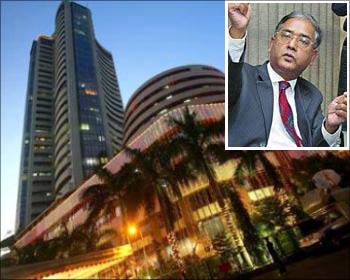The SEBI board in its today meeting announced major decisions which are as mentioned below:
a) Fees on Mutual Fund transactions: Healing the wounds of Mutual Fund Industry which had been almost killed since the ban of entry load in Aug 2009, SEBI imposed a fee of Rs. 100 per transaction on Mutual Fund investments for existing investors while new investors would have to cough up Rs. 150 on investment above Rs. 10,000. This is a break through decision for bleeding distributors’ community to compensate them to penetrate into retail segment.
The per transaction fee would be Rs. 100 for investments above Rs. 10,000 including Rs. 50 per new folio creation i.e. first time Mutual Fund investor. This may be deterrent to investors as distributors may promote new folio each time investors put money into Mutual Funds. For SIPs, the transaction charges can be recovered in 3 or 4 months. However, it is still not clear whether the new SIP transactions of less than Rs. 10,000 would have one-time fee of Rs. 150 only recoverable on 3 or 4 months. Investors investing directly through AMCs shall not require paying any transaction fee or folio creation fee.
This move is seen as back door imposition of entry load in Mutual Fund which has been banned in Aug 2009. The ruling had hit Mutual Fund inflows severely and had de-incentivized IFAs and distributors to promote Mutual Funds.
The regulator also put onus on AMCs to do due diligence and regulate distributors alternatively. The diligence process would be applicable for those distributors satisfying one or more of the following criteria:
1) Multiple point presence in more than 20 locations
2) AUM raised over Rs. 100 crore across industry in the non-institutional category but high networth individuals (HNIs)
3) Commission received of over Rs. 1 crore p.a. across industry
4) Commission received of over Rs. 50 lakh from a single mutual fund
b) New Takeover regulation: The regulator raised the initial trigger threshold to 25 per cent from the existing 15 per cent and also abolished the non-compete fees. All shareholders would be given exit at the same price. It also increased the minimum offer size from the existing 20 per cent of the total issued capital to 26 per cent of the total issued capital. This is a welcome move for institutional investors who were not able to put money in listed companies for more than 15 per cent of their issued capital in fear of mandatory requirement of additional 20 per cent open offer. Now, investors can buy up to 25 per cent stake without making an open offer.
c) Guidelines for Infrastructure Debt Funds (IDF): The SEBI also allowed existing Mutual Funds to set up IDF. Existing companies in infrastructure financing for a period not less than five years can also set up Mutual Funds exclusively for the purpose of launching IDF scheme. As said in earlier document by the Finance Ministry, it would invest 90 per cent of its assets in the debt securities of infrastructure companies or SPVs across all infrastructure sectors. This new proposal may open a new financing window for the government who has been looking for a fund equivalent to $ 1 trillion to build the infrastructure in India.
d) Reduction in no. of pages of IPO form: The SEBI allowed an approximate 50 per cent reduction in number of pages and asked for standardization of form and a single form for ASBA/Non-ASBA. It has also asked to put track record of lead managers in Bid-cum-Application Form and Abridged Prospectus. This would a boon for all investors who have to go through the pain of filling so many information in a larger sized form.
The SEBI also announced various other regulations and guidelines related to simplifying and rationalizing trading account opening process and also harmonized the new KYC applicable for all transactions. The guidelines have been framed keeping the investors at benefit. Under former SEBI C B Bhave’s chairmanship, there had been a number of investors’ friendly steps but too many guidelines had been killing the industry especially Mutual Fund industry. The new chairman U K Sinha, an IAS veteran and the former Chairman of UTI Mutual Fund had promised some incentives to distributors/IFAs to sell Mutual Funds which to a large extent seemed justified in today guidelines. However, at the end, investors would be paying some additional charges on their Mutual Fund investments.
Happy Investing!
- Amar Ranu
